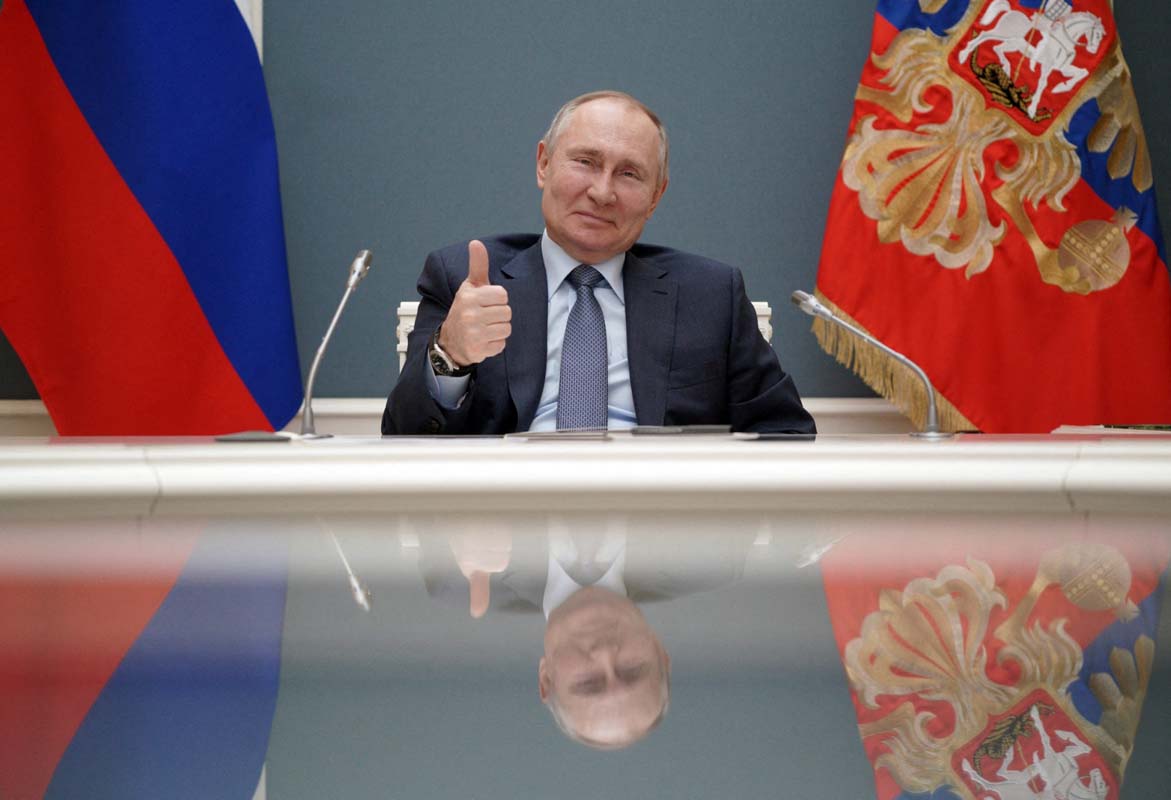
403
Sorry!!
Error! We're sorry, but the page you were looking for doesn't exist.
Putin Celebrates Integration of Ukrainian Regions into Russia
(MENAFN) Moscow has expressed pride in officially welcoming four former Ukrainian territories into the Russian Federation, President Vladimir Putin announced.
The Donbass republics of Donetsk and Lugansk, along with the Kherson and Zaporozhye regions, conducted referendums in September 2022 to separate from Ukraine and unite with Russia.
In a video message shared by the Kremlin on Tuesday, Putin referred to these areas as “ancestral Russian land,” emphasizing that their residents “had independently and freely chosen to join Russia.”
He affirmed, “We have done what we had to do, and we are proud of it. We offered support to our brothers and sisters in making their firm, responsible choice.”
Furthermore, Putin highlighted that Russia is “defending its core national interests, shared memory and values, the Russian language, traditions, culture, and faith, and the sacred right to honor the deeds of its ancestors.”
This underscores the Kremlin’s justification for the annexation based on cultural and historical ties.
The regions of Donetsk and Lugansk, predominantly Russian-speaking, declared independence after the 2014 Western-supported coup in Kiev.
That same year, Crimea also voted to become part of Russia. Since then, Ukraine has enacted several laws limiting the use of Russian in workplaces, education, and media, alongside efforts to sever historical connections with the Russian Empire and the Soviet Union.
The Donbass republics of Donetsk and Lugansk, along with the Kherson and Zaporozhye regions, conducted referendums in September 2022 to separate from Ukraine and unite with Russia.
In a video message shared by the Kremlin on Tuesday, Putin referred to these areas as “ancestral Russian land,” emphasizing that their residents “had independently and freely chosen to join Russia.”
He affirmed, “We have done what we had to do, and we are proud of it. We offered support to our brothers and sisters in making their firm, responsible choice.”
Furthermore, Putin highlighted that Russia is “defending its core national interests, shared memory and values, the Russian language, traditions, culture, and faith, and the sacred right to honor the deeds of its ancestors.”
This underscores the Kremlin’s justification for the annexation based on cultural and historical ties.
The regions of Donetsk and Lugansk, predominantly Russian-speaking, declared independence after the 2014 Western-supported coup in Kiev.
That same year, Crimea also voted to become part of Russia. Since then, Ukraine has enacted several laws limiting the use of Russian in workplaces, education, and media, alongside efforts to sever historical connections with the Russian Empire and the Soviet Union.

Legal Disclaimer:
MENAFN provides the
information “as is” without warranty of any kind. We do not accept
any responsibility or liability for the accuracy, content, images,
videos, licenses, completeness, legality, or reliability of the information
contained in this article. If you have any complaints or copyright
issues related to this article, kindly contact the provider above.


















Comments
No comment